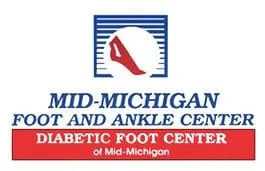 Lake Forest graduate Billy Bund prepares to run for Michigan in the fall. In order to be able to participate, however, Bund needs plenty of rest to recover from foot and hip injuries he’s sustained.
Lake Forest graduate Billy Bund prepares to run for Michigan in the fall. In order to be able to participate, however, Bund needs plenty of rest to recover from foot and hip injuries he’s sustained.
"Today's my last day of being on active rest for 10 days. I've been trying to sleep, which I need to work on. Trying to give my mind and body a break. After today I get to start training again,” Bund said.
Bund became one of the school's most successful runners, having completed a fifth place finish in the 1,600-meter run (4:14.84) at the state track meet this spring. The stress fracture in his left foot caused Bund to miss two months of his final track season. "My plan is to give it my best. The only thing you can control is the effort you put into something. I'll do everything I can and see what happens from there," said Bund
Dealing with a stress fracture like Bund can be a painful endeavor. Treatment and recovery can be aided with the help of a podiatrist, like Dr. Andrew H. Cohen of Mid-Michigan Foot and Ankle Center. Dr. Cohen can help by examining the stress fracture and determining the best course of treatment.
Stress Fractures
Stress Fractures occur on the foot and ankle when muscles in these areas weaken as a result of overexertion or underuse. As a result, the ankles and feet lose support when walking or running from the ground. Since these bones are not protected, they receive the full impact of each step. The stress on the feet causes the bones to form cracks.
What are Stress Fractures?
Stress Fractures are very common among those who are highly active and involved in sports or activities that make excessive use of their legs and feet. Stress fractures are especially common among:
-athletes (gymnasts, tennis players, basketball players)
-runners/joggers
-osteoporosis patients
-those who engage in high-intensity workouts
Stress Fracture Symptoms
Pain from the fractures occur in the area of the fractures, and can be either constant or periodic. The pain is usually sharp or dull, accompanied by swelling and tenderness. Engagement in any kind of high impact activity will exacerbate the pain.
Treating Stress Fractures
- Set a routine regimen for any activities that involve running
- Choose footwear that provides good support
- Take bone-healthy supplements (Vitamin D, Calcium)
- Surgery with supportive pins around the ankle
If you have any questions, please feel free to contact one of our offices located in Saginaw, MI and Essexville, MI. We offer the newest diagnostic and treatment technologies for all your foot care needs.
Read more on Stress Fractures.


